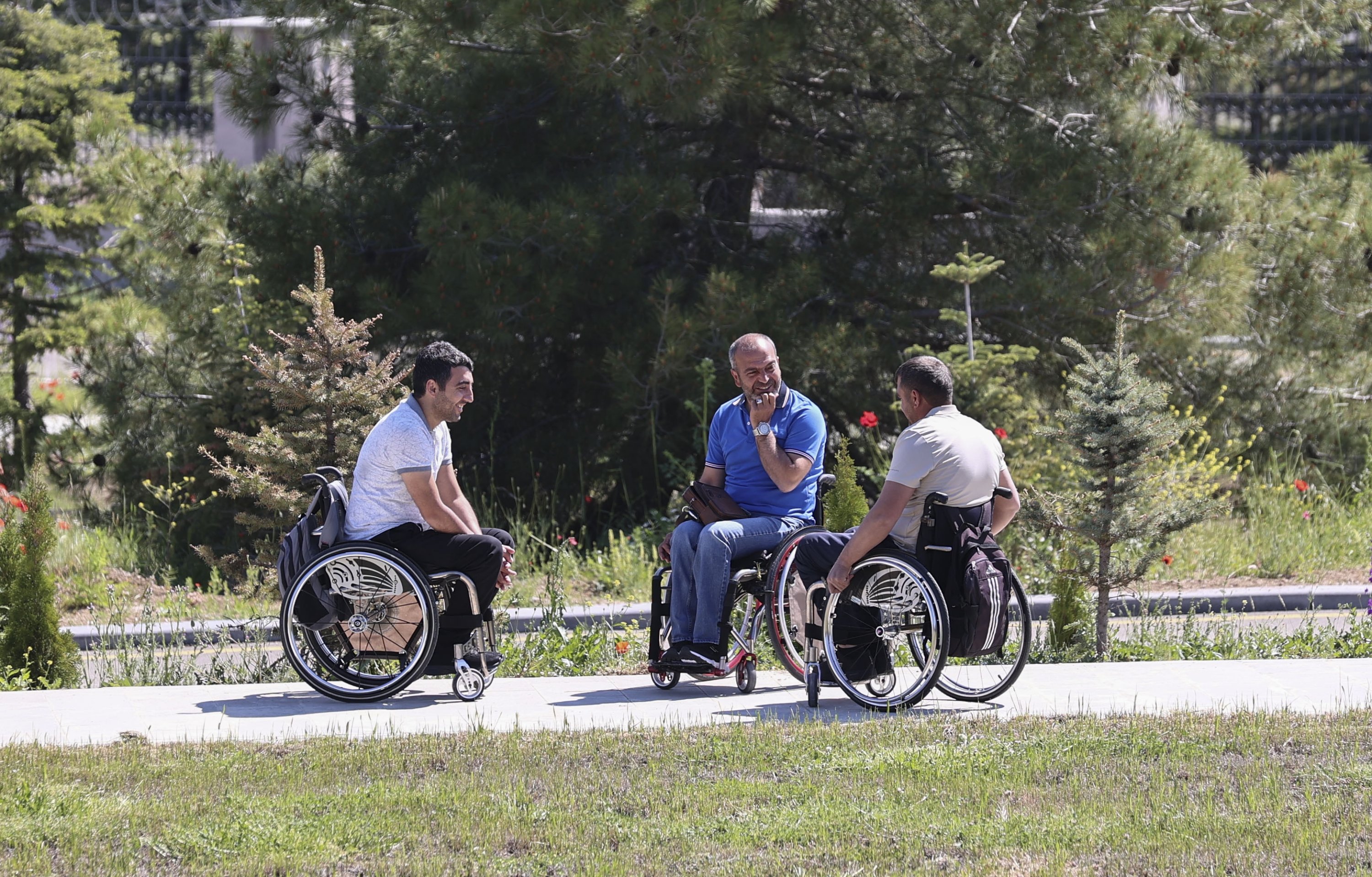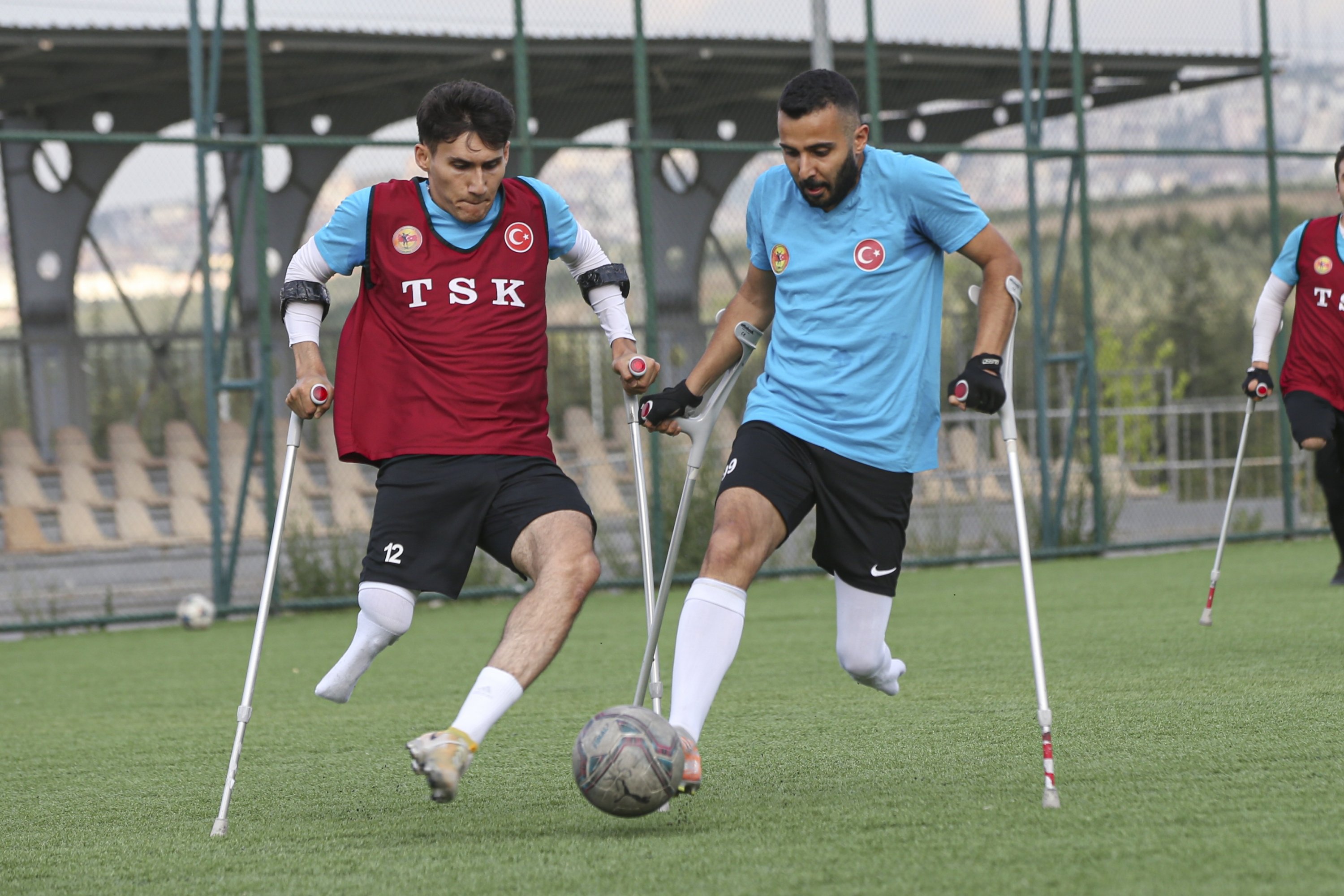© Turkuvaz Haberleşme ve Yayıncılık 2025
Sprawling across a lush space by the side of a busy road, a compound in the Turkish capital Ankara is the first stopover for veterans of Turkey’s counterterrorism operations before they return to their daily lives.
The Veterans Adaptation House run by the Ministry of National Defense is the first of its kind for Turkey, whose soldiers, police officers and civilians have been victims of terror attacks, particularly by the PKK since the 1980s. Some are traumatized, others lost limbs, but the veterans seek to reclaim their old lives, which is a serious challenge.
The center serves as a place for their physical or psychiatric recovery and a venue where their spirits can be lifted again. Across the compound located on an area of 750 acres, they are far from the hubbub of the big city and have the opportunity to devote their time to leisure activities, from football to growing plants. For those interested in sports, an archery range and air gun range provide diversion.

The compound houses 129 rooms, a library, exhibition and conference halls, prayer rooms and a picnic ground, along with other venues. On a football pitch in the venue, veterans polish their sports skills, with matches against amputee teams.
Col. Vahdettin Taşdelen, director of the center, says they considered every detail when designing the services for veterans, noting as an example that they equipped the housing blocks with retractable roofs, “so they can enjoy full sunlight.”
Veteran Capt. Özgür Ocak is among the residents of the center. A member of the Turkish army’s elite Special Forces, Ocak was seriously injured during Operation Olive Branch in Syria on Feb. 10, 2018. He lost several fingers and is now missing the lower half of his right leg. His heart stopped three times as he was being airlifted to a hospital in the Turkish province of Hatay bordering Syria but he was resuscitated and finally brought to Gülhane Training and Research Hospital, the army’s main hospital, in Ankara. After his fingers were surgically reattached, Ocak was transferred to a veterans’ hospital where he was fitted with an artificial leg. His next destination was the Veterans Adaptation House. Here, he still undergoes physical therapy. “This place has a great influence on our return to society, to socialize with other veterans,” he says. Ocak also hails the opportunity to have his family with him. The captain is not a long-time resident and usually opts to spend time at the center at the weekends, for walks with his family in nature while his children spend time in playgrounds around.

Cafer Yılmaz, 26, lost the lower half of his leg when an airstrike by putschists hit the crowd resisting the coup attempt by Gülenist Terror Group (FETÖ) infiltrators in the army. He was among a crowd outside the presidential complex. The center is a place he visits for training. Yılmaz plays amputee football, a sport he was introduced to by coaches of an amputee football club of the Turkish army in his neighborhood. When he found out that disabled people can “adapt” to life easier with sports, he decided to give it a try. Over time, he felt “rehabilitated” and became a professional player. “This place gave me back my life. I am a very different person now compared to my former self, when I lost my leg. I recommend engaging in sports to any person with a disability,” he said. “Every new member of our team had a hard time communicating with others. They could not even do the basic tasks. But over time, I see them regaining self-confidence and doing everything on their own,” he says.
